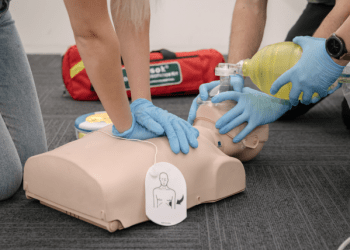Wisdom teeth, also known as third molars, are the last set of teeth to develop—usually erupting between the ages of 17 and 25. For many people, hearing the words “wisdom teeth” automatically brings up thoughts of surgery, swelling, and soft foods. But the big question is: Do all wisdom teeth really need to be removed?
The answer isn’t a simple yes or no. While many people do need their wisdom teeth taken out, not everyone does. Whether removal is necessary depends on how the teeth are growing in, whether they’re causing problems, and your long-term oral health outlook.
Let’s explore why some wisdom teeth need to go, and why others can stay right where they are.
Why Wisdom Teeth Might Need to Be Removed
In many cases, wisdom teeth don’t have enough room to erupt properly in the mouth. Because they’re the last to come in, they often grow at an angle, remain trapped beneath the gum line (impacted), or push against neighboring teeth.
Here are some common reasons why dentists recommend removing them:
1. Impaction
An impacted wisdom tooth is one that doesn’t fully emerge through the gums. It may grow sideways, at an angle, or get stuck under bone or soft tissue. Impacted wisdom teeth can lead to pain, swelling, and infections if not removed.
2. Crowding or Shifting Teeth
Wisdom teeth may push against adjacent teeth as they grow in, leading to crowding or shifting of previously straight teeth—especially after orthodontic treatment.
3. Infection or Gum Disease
Wisdom teeth that are partially erupted are hard to clean, making them a hotspot for bacteria. This can lead to pericoronitis (infection of the gum tissue), tooth decay, or periodontal (gum) disease.
4. Cysts or Damage to Nearby Teeth
Sometimes, wisdom teeth can develop fluid-filled cysts or cause damage to nearby molars, which can compromise your bite and jaw health.
When Wisdom Teeth Don’t Need to Be Removed
Not everyone needs surgery. Some people have wisdom teeth that:
- Are fully erupted
- Are healthy
- Are properly aligned
- Can be cleaned easily during regular oral hygiene
In such cases, removal isn’t necessary, and your dentist may recommend simply monitoring them over time. Regular dental check-ups and X-rays help determine whether they’re stable or beginning to cause issues.
Fun Fact: Some people are naturally missing one or more wisdom teeth. This is completely normal and may reduce the need for extraction.
Age and Timing Matter
Dentists often recommend wisdom tooth removal during the late teens or early 20s—even if they’re not yet causing problems—because the roots are not fully formed, and the surrounding bone is softer. This makes the procedure safer, with faster recovery and fewer complications.
Waiting until later in life, when roots are deeper and bones are denser, may increase the risk of:
- Longer healing time
- Infection or dry socket
- Nerve damage (in rare cases)
That said, proactive removal isn’t always necessary, especially if the teeth appear to be developing normally. The key is early evaluation and ongoing monitoring.
How Dentists Decide Whether to Remove Them
Your dentist or oral surgeon will use several factors to decide if removal is recommended:
- Clinical symptoms (pain, swelling, infection)
- X-ray or 3D imaging results
- Gum health around the tooth
- Room in your jaw
- Risk of future complications
If wisdom teeth are deemed harmless, your provider may take a “watch and wait” approach instead of rushing into extraction.
It’s Not One-Size-Fits-All
While many people do need to have their wisdom teeth extracted—especially if they’re impacted or causing problems—not everyone does. Healthy, fully erupted, and properly aligned wisdom teeth may not need any intervention at all.
The best way to know what’s right for you is to consult with your dentist or orthodontist. With regular exams and X-rays, they can monitor your wisdom teeth and recommend the best course of action—whether that means removal, observation, or no action at all.
So, before you schedule surgery based on someone else’s experience, talk to your dentist. Your wisdom teeth might just be wise enough to stay.











